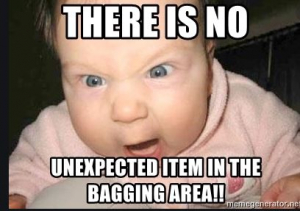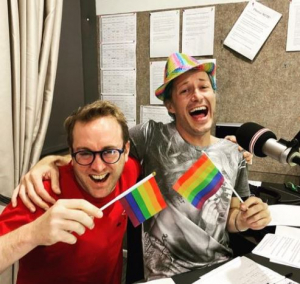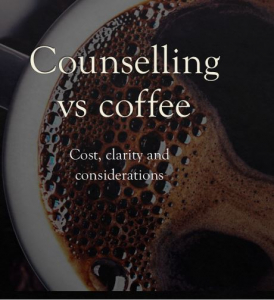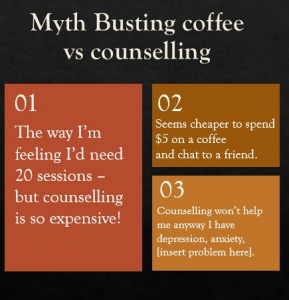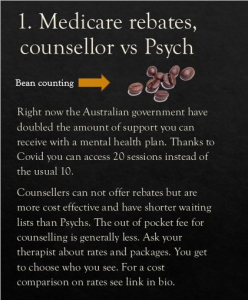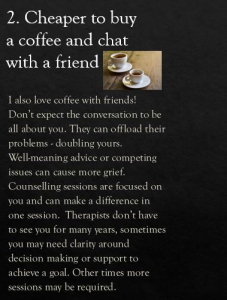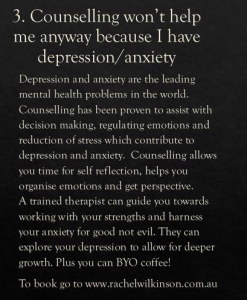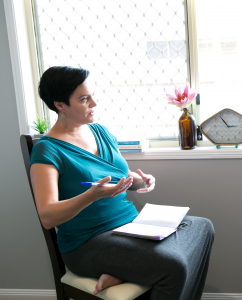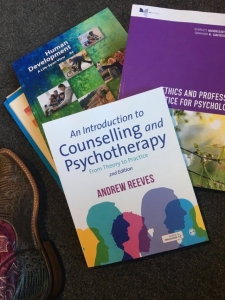They say after the dust settles you often find perspective, the pain eases with time. Apparently, people have trouble remembering the physical pain of trauma after it has passed, like childbirth, abuse, or injury because the body goes into shock, shutting down and the brain tries to help us by forgetting.
I remember and feel everything. It can be a blessing and a curse. It is also possibly why I decided to have only two children and why I will do anything I can to protect them from undue stress and pain. Recently, as a family, we have had to walk alongside our children on a horrendous path which they kept silent about for a long period of time, hoping to protect us or themselves. This didn’t happen. We are exhausted, medicated, raw, and in pain, but have learned the lesson. Somehow, it feels like we have all been through it, but we are taking all that anger and hurt and using it to stand up for ourselves and others.
What is the definition of bullying?
The National definition for Australian schools says:
Bullying is an ongoing and deliberate misuse of power in relationships through repeated verbal, physical, and/or social behaviour that intends to cause physical, social, and/or psychological harm. It can involve an individual or a group misusing their power…over one or more persons who feel unable to stop it from happening. Bullying can happen in person or online…Bullying behaviour is repeated, over time (for example, through sharing of digital records). Bullying of any form or for any reason can have immediate, medium, and long-term effects on those involved, including bystanders.
It is worthwhile to point out this common misconception that: Single incidents, conflict, or fights between equals, whether in person or online, are not defined as bullying.
I’m currently selling off my children’s school uniforms, backpacks, ties, hats, swimwear, and sports gear, for a fraction of their original cost. As I hand over the small bundles of shirts and bags, to other mothers, it feels like I am selling off my daughters’ body parts after death. The grief is a weight. As a family, we had so many aspirations for the girls at high school. None of them were academic, they were all based around friendship and integration into the local community.
In my previous career, I was often told to keep my head down in meetings, not to say what was on my mind, don’t speak up, out, buck the system, or eye roll. I used to draw pictures of those people in meetings, marking their faces with deep lines, sketching in horns and fangs. I was unable to voice my opinion because I was the minority, too emotional, or oppositional, and I shouldn’t rock the boat. I was placated with archaic phrases like ‘big ships take a long time to turn’, ‘we can’t change the system, this is just how it is,’ and the worst phrase which I refuse to accept, ‘it is what it is ‘.
Let me say, it has been refreshing to work for myself. There is no one to shush me, and I will speak up. I don’t care how big your fucking ship is. Kids are being harassed on and offline, beaten up, assaulted, raped, turning to drugs to escape the torment, and suiciding. I will not be silenced. I will bang on about this until policies are revised and updated, until schools and boards take accountability, and until parents and kids understand the consequences. I will no longer advise my children and others to ignore or block cyber cowards. Once blocked, evidence is lost, and the evidence, I have discovered is the key. I will support young people to name these bullies, because I know how to do that now.
Types of bullying
The National Centre against bullying identifies 5 types of bullying:
- Physical – including damage to property
- Verbal – name-calling, insults, and verbal abuse
- Covert bullying – spreading rumours or damaging reputation
- Psychological bullying – by an individual or group
- Cyberbullying – online harassment, menacing or abuse
Current practice for some schools around cyberbullying is, if it’s not sent on a school device or out of school hours, it’s not their problem. This get-out-of-jail-free card did not sit well with me. To me, students have behavioural expectations in and out of uniform. The kids being hassled after school must front up every day and face these tormentors. I researched some school policies, which in fact had quite a few pages about online harassment and cyberbullying basically suggesting it was not kind. Do you know what else it is? Illegal.
I know this because I popped into the police station after a trip to Aldi one Sunday. I sat in the car park thinking “Am I that parent?” then on reflection of the trauma, I had seen both in my own children and families coming in for therapy who have been told both face-to-face and online “you are a slut/bitch/whore/weirdo,” or “go kill yourself,” I decided I was. After watching my kids experience the emotional and psychological stress, school refusal and withdrawal, the academic and social impacts, the light going out of their eyes, and their confidence shattered, I decided I am that parent, I am that mother and I am that therapist. I will advocate for those who feel powerless, diminished, crushed, and unable to speak. After hearing about and knowing kids who have hung themselves, jumped off rooves, overdosed, and died in single-vehicle accidents, or farming accidents, you bet, I am that person, and I want to talk about it.
Some of the signs your child may be being bullied
- Social anxiety, not wanting to go to shopping centres or into the local community for fear of running into bullies
- Changes in eating or sleeping – sleeping more, eating less, eating more, sleeping less
- Health problems, headaches, or stomach aches
- Unhappiness, tearfulness, mood swings, temper tantrums, quick to anger
- Reluctance to go to school, changes in academic performance
I grew up, in the dark ages according to my kids. They once asked me if I rode in a horse and cart to school. So apparently being born last century makes me a peasant farmer. I may not have had apps and facetime, but I did have to remember my PIN number, the combination lock on my bike, and my friends’ phone numbers off by heart. What I didn’t realise then, amongst all my teenage angst, was how simple it was, if I did’t want to take a call or speak to anyone I didn’t have to. I unwound by flicking on the radio or listening to a mixtape. The most stressful part of my afternoon was having mum interrupt me taping a Clash song from the radio, to call me for dinner, or the tape getting caught and mangled and having to patiently roll it back in with my Bic biro. Unless someone literally knocked on my front door, they couldn’t get to me.
I remember the names of the two boys who picked on me relentlessly in Year 6 even though I was the principal’s daughter, seems I was not off-limits. I googled them both once in a fit of pique, happy to see one had disappeared entirely and the other was still in the same small town with a menial job. I felt vindicated. Ignoring behaviour does not mean it is forgotten. The repercussions of bullying are long-lasting. I still remember the hurt and isolation, forty years on.
Immediate intervention punishing the bullies does not heal the damage or take away the threat. The nervous system continues to stay on high alert and in stress mode. This can also become triggered and reactivated in future high-stress situations causing feelings of inadequacy, and thoughts of “I’m dumb, I’m ugly, Nobody likes me, or I’m not good enough,” re-emerging throughout adulthood.
I have worked in counselling sessions with adults still impacted by harassment from students in high school. The repercussions of bullying can be felt long after the abuse has stopped. Bullying can result in substance abuse, self-harm, promiscuity, illness, social withdrawal, relationship breakups, unemployment, and sometimes suicide.
What are the school’s obligations?
- Let the student know of a bullying contact person
- Offer support strategies for individuals experiencing bullying, outline what will happen next
- Report to appropriate staff members such as Dept. Head of Middle School, Head of Middle School
- Deliver appropriate support and consequences for students who behave inappropriately
- Provide preventative strategies
- Ensure not to model bullying behaviour in interactions with students
The thing is, if you’ve never experienced bullying, and are not familiar with reporting procedures, you may not know how to book an appointment with the school counsellor, psychologist or chaplain. Schools say they don’t highlight these in case it might encourage students to bully others, like talking about taboo subjects like suicide, drug-taking or sex might give people ideas. It doesn’t. It creates awareness and educates. It allows students to be proactive rather than reactive. It allows them to be responsible for their own mental health.
Bullies often get away with their menacing behaviour. Students become labelled as overly sensitive, emotional, or prone to drama. There is no other choice for the victims but to leave the school or workplace. I have witnessed this, working in schools and in small, medium, and large companies. Bullies can be protected in the workplace because they are in high-level management or are good at their job. They may be an asset to the school if they are a scholar or swim star, from an important family, or part of an educator’s family. The bullies themselves might even suggest they have been victimised.
Consequences
Many kids don’t understand the long-term repercussions of their actions. Neurologist Dr. Daniel Siegel suggests the adolescent brain is not fully developed, high-level executive functioning does not happen until after the age of 25 or, sometimes closer to 30 years of age. Young people do not have the capacity to fully comprehend the consequences. They are unable to be reflective, to pause and think, and the risk often outweighs the punishment. They do not see the extent of the damage or the greater picture.
Then there is the question of what happens to these pests and menaces, after the punishment, the dressing down, or disciplinary action? What do they do with their displaced anger? How are they able to express their rage about life, or their own pressure to perform? Do they move on to attack someone else, perhaps in their own family or outside their small community, do they become cyber menaces? Where in the policy does it suggest both victim and bully need support rather than further bullying by the institution, in the shape of punishment or shaming. This has to be addressed. Very often, acting out, behavioural problems, and anger hint at a deeper underlying sadness, fear, shame or trauma. Where is the empathy for the angry person? It seems we further bully the individual to stop them from bullying. This often makes them stop, but it doesn’t diffuse their anger, it can often incite more.
In his latest book Brainstorm, Dr. Daniel Siegel explains that between the ages of twelve and twenty-four, the brain changes in important and, at times, challenging ways. According to Siegel, during adolescence, we learn vital skills, such as how to leave home and enter the larger world, connect deeply with others, and safely experiment and take risks. As parents, we need to ensure these connections are respectful and kind and the risks are safe.
What can I do as a student or parent?
- Report it. Put this in writing, stymie it anonymously if your school has this system. Ask someone else to do it for you if you are worried about being called a dobber or snitch. Once it is emailed you have a date, timeline, and history of harassment. Remember, bullying is not a one-off comment, it is repeated, harmful and menacing.
- Collect evidence. Save screenshots. Tell your parents, a therapist, or a trusted adult. Keep a record of dates in your school diary or notes on your phone, what was said and by whom. Name names. This will not make it worse; it will make it clear to the school what is happening so they can act upon it.
- Copy in the Head of Year, Head of School, or Principal to ensure it is not overlooked, covered up, or disregarded. Follow up on their progress with a phone call if you don’t get a reply. Ask for a report on future actions.
- Check the school anti-bullying policy for breaches by staff and students. What is the responsibility of the school, or staff, how have they failed in their duty of care for your child? What happened after the incident was reported? Parents and students have a right to know. Many of these policies date quickly as technology changes rapidly and these documents need to include apps that may bully by stealth like Snapchat and group shaming via Tik Tok. Annual revisions to policies must include all emerging apps and potential cyber threats.
- If you have evidence of cyber menacing, offensive comments, or death threats and the school will not proceed with this, go directly to the police. This is a criminal offence. Under the age of 14, a child can be called into a police station and interrogated by the police. If they are over 14 they can be charged. This charge will stay on their record as an adult. This will affect their employment status and show up in future police checks for the rest of their lives.
- Also, if you send or receive nudes/dick pics and you are under 16 you will be charged with distribution or receiving child pornography. * This criminal charge is a big one, with lifetime employment consequences. The type that may only qualify you for a job cleaning the toilets at your old school.
- In the state of Queensland as of July 2021, it has now become mandatory for every adult to report sexual abuse of a minor. Not just educators and health workers. Everyone can and must report if they have been told of abuse by a child under 16 or suspect abuse has occurred.
They say you have to go through it, to grow through it. As a family, we have learned many lessons. I have lost a bit of joie de vivre and hope, but by God, I will push hard to get it back and I will not be a bystander. I will do this by suggesting others speak up, report, screenshot, document, collect evidence, and demand policy changes. Because as the French say, now I’m d’un certain age (middle-aged) it feels okay to rage and roar at the system. There will be no holding my tongue, minding my manners, or suppressing my fury. I will campaign for you with clear evidence and truth. I will not be silenced or intimidated. I am fierce and protective and will stand together with those who cannot speak for themselves. I am here. I hear you.
Other support available:
- Lifeline 13 11 14
- Kid’s Helpline ( 5 – 25 years) 1800 551 800
- Suicide call back service 1300 659 467
- e-safety support website https://www.esafety.gov.au/ includes tailored support for the LGBTIQ+ community
- Police 000
- If pictures of you have been shared you can get these images taken down by contacting e-safety.gov.au.
Please share via the buttons below if this can help to support and empower other families.
Rachel Wilkinson is a holistic counsellor, parent of teenagers, and now an ABV. (Anti-bullying vigilante). She works with individuals, families, and teens to manage the stress of life. She supports people through anxiety, depression, grief, loss, communication problems, addiction, change, relationships issues, as well as bullying on and offline.
Follow this link to her website: https://bit.ly/3ATcLTV or email: info@rachelwilkinson.com.au
Phone: 040 232 9259 | To book an appointment: https://bit.ly/3dYXKWO


